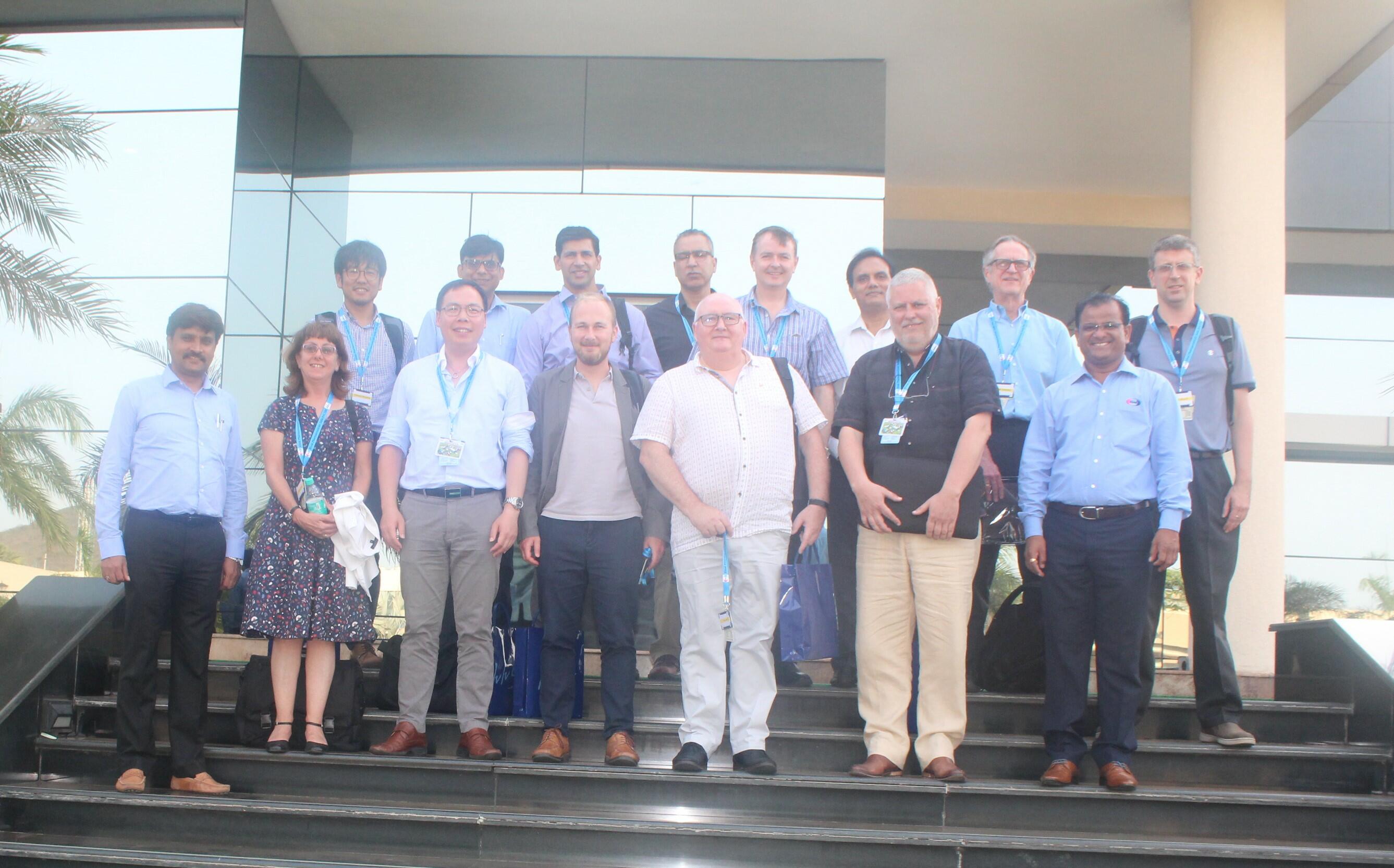
The A∙WOL antifilarial drug discovery team has been named the winner of the Royal Society of Chemistry's Horizon Prize, which celebrates discoveries and innovations that push the boundaries of science.
The Horizon Prize was awarded to researchers from Liverpool School of Tropical Medicine (LSTM), the University of Liverpool, Imperial College London, University of Bonn and industrial partners from Astra Zeneca and Eisai Ltd for the discovery of new, fast-acting, highly specific anti-Wolbachia drug candidates for the oral treatment of human filariasis.
Lymphatic filariasis and onchocerciasis are two neglected tropical diseases (NTDs) that cause severe disability, skin disease and blindness and affect more than 117 million people globally, ranking them as one of the leading causes of global morbidity.
These diseases are caused by long-lived parasitic nematode worms, called filariae, that rely on a special type of bacteria, Wolbachia, to survive. The Liverpool team pioneered drug targeting Wolbachia with the antibiotic doxycycline to demonstrate the permanent sterilisation of adult female parasites and the gradual death of the adult worm.
The A∙WOL team's collaborative research has led to the discovery of a synthetic drug candidate, AWZ1066S which specifically targets Wolbachia bacteria. It offers a shorter treatment compared to antibiotics and entered clinical trials in 2022.
Professor Mark Taylor, Director of the A∙WOL Consortium and the Centre for Neglected Tropical Disease (CNTD) at LSTM, said: "The A∙WOL team's new drug discovery methods have put us a significant step closer to finding a workable Wolbachia treatment that is faster acting and doesn't rely on broad spectrum registered antibiotics. The method of discovery also has implications for finding new synthetic drug candidates for Wolbachia and other diseases."
LSTM Deputy Director Professor Steve Ward said: “The success of the A-WOL initiative highlighted the impact that LSTMs Centre for Drug and Diagnostics can have in delivering new therapeutics for NTDs, a focus that has been further strengthened through investment from an E3 award."
Professor Paul O'Neill from the University of Liverpool said: "We are delighted to receive this award for our collaborative research, which has allowed us to discover a first-in-class synthetic Anti-Wolbachiadrug candidate against filarial diseases and a portfolio of distinctive fast-acting lead molecules for further chemical optimisation."
The A∙WOL team screened over 2 million compounds, which also identified several promising starting points for new medications, with work already completed with AstraZeneca to understand how these new chemical classes can eliminate Wolbachia from the worms more rapidly leading to shorter courses of treatment.
Dr Helen Pain, Chief Executive of the Royal Society of Chemistry, said: "The chemical sciences cover a rich and diverse collection of disciplines, from fundamental understanding of materials and the living world to applications in medicine, sustainability, technology and more. By working together across borders and disciplines, chemists are finding solutions to some of the world's most pressing challenges.
"Our prize winners come from a vast array of backgrounds, all contributing in different ways to our knowledge-base and bringing fresh ideas and innovations.
"Their passion, dedication and brilliance are an inspiration. I extend my warmest congratulations to them all."
The Royal Society of Chemistry's prizes have recognised excellence in the chemical sciences for more than 150 years. This year's winners join a prestigious list of past winners in the RSC's prize portfolio, 60 of whom have gone on to win Nobel Prizes for their work, including 2022 Nobel laureate Carolyn Bertozzi and 2019 Nobel laureate John B Goodenough.
The Horizon Prizes highlight exciting, contemporary chemical science at the cutting edge of research and innovation. These prizes are for groups, teams and collaborations of any form or size that are opening up new directions and possibilities in their field, through groundbreaking scientific developments. Other prize categories include those for Research & Innovation, Education, announced in November, the Inclusion & Diversity Prize, and Volunteer Recognition Prizes.
For more information about the RSC's prizes portfolio, visit rsc.li/prizes.